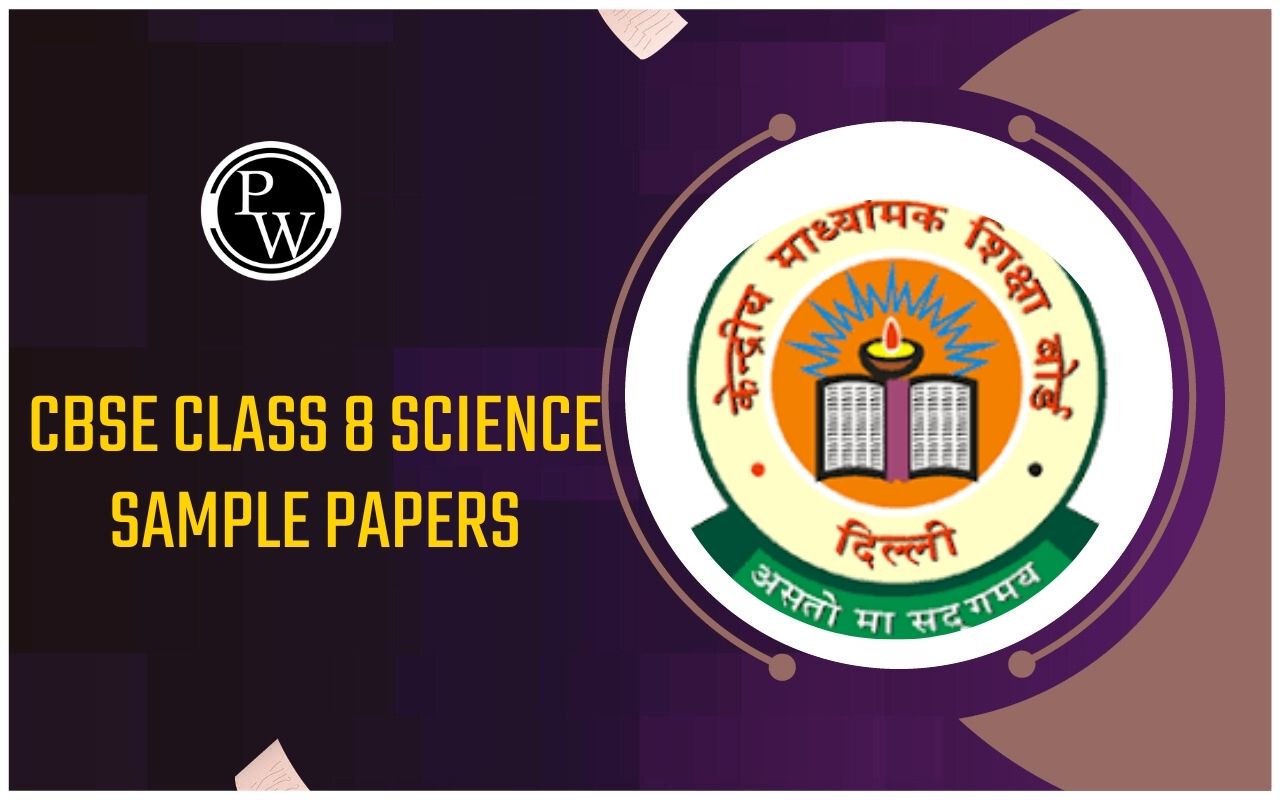
NCERT Solutions For Class 8 Science Chapter 5: Class 8 NCERT Solutions for Chapter 5 Class 8 students will benefit from the preparation of coal and petroleum. They include the solutions to the Class 8 Science Chapter 5 questions as well as the CBSE Syllabus. This solution aids in your exam preparation and provides you with a comprehensive understanding of the subject.
Students should complete the Class 8 Science NCERT questions at the end of each chapter to get good grades in the exams. One of the most significant years in a student's life is class eight. In Class 8, students study a wide range of new subjects that serve as the foundation for subjects covered in higher classes. Answers to questions about fossil fuels, including coal, oil, and natural gas, as well as their formation, types, applications, and drawbacks, can be found in these NCERT Solutions for Class 8 Science Chapter 5. These methodically prepared NCERT Class 8 Solutions by knowledgeable teachers can aid you in both exam preparation and a deeper comprehension of the subject.NCERT Solutions For Class 8 Science Chapter 5 Overview
Students can have a deeper grasp of these vital natural resources by using the NCERT Solutions for Science Class 8 Chapter 3 question answers. The chapter discusses the development, origin, and extraction of petroleum and coal, highlighting their importance in the energy industry. To make sure that students understand the scientific concepts underlying these fossil fuels, the answers to the questions in class 8 Science Chapter 3 include thorough explanations.Glance on NCERT Solutions Chapter 3 Science Class 8 Coal and Petroleum
- Chapter 3 of NCERT Science for Class 8 explains how the discovery of fossil fuels has significantly accelerated the advancement of human civilization toward a more promising future.
- According to Class 8 Science, Chapter 3 on Coal and Petroleum, these resources are running out regularly.
- By building new machinery, scientists have begun to harness the limitless energy found in natural sources.
- You will also discover how fossil fuels are generated in Class 8 Science, Chapter 3. Find out how it takes them millions of years to evolve into coal and petroleum under the correct circumstances.
- You will also discover how fractional and destructive distillation provides us with the goods we use in class 8 science chapter 3's solutions to the coal and petroleum questions.
- Under natural circumstances, petroleum and coal cannot be used. To create the fuels and products that are suitable for use, they undergo both chemical and physical treatments.
- Make sure you thoroughly read Class 8 Chapter 3 Science and understand the new ideas so you can respond to the exercises' questions.
NCERT Solutions For Class 8 Science Chapter 5 PDF
Here we have provided NCERT Solutions for Class 8 Science Chapter 5 for the ease of students so that they can just download the pdf and use it easily without the internet. These NCERT Solutions for Class 8 Science Chapter 5 will help students understand the chapter better.NCERT Solutions For Class 8 Science Chapter 5 PDF
NCERT Solutions For Class 8 Science Chapter 5
Here we have provided NCERT Solutions for Class 8 Science Chapter 5 for the ease of students so that they can prepare better for their exams.1. What are the advantages of using CNG and LPG as fuels?
The following are some benefits of using LPG and CNG as fuels: Burning LPG and CNG is easy. When burned, CNG and LPG produce a lot of heat energy. Pipelines make it easy to transport LPG and CNG. When burned, clean fuels like LPG and CNG don't produce smoke.2. Name the petroleum product used for surfacing of roads.
Bitumen is used for the surfacing of roads.3. Describe how coal is formed from dead vegetation. What is this process called?
Millions of years ago, natural processes buried dense forests beneath the dirt. They became further crushed as more and more dirt was put on top of them. They were exposed to extremely high pressure and temperature as a result. These harsh conditions caused them to gradually turn into coal. Carbonization is the term used to describe the entire process by which dead plant turns into coal.4. Fill in the blanks.
(a) Fossil fuels are ____________, ____________, and ____________ .
(b) The process of separation of different constituents from petroleum is called _____________.
(c) The least polluting fuel for a vehicle is ______________.
(a) Fossil fuels Coal, Petroleum , and natural gas . (b) The process of separation of different constituents from petroleum is called refining . (c) The least polluting fuel for a vehicle is Compressed Natural Gas (CNG).5. Tick True/False against the following statements.
(a) Fossil fuels can be made in the laboratory. (T/F)
(b) CNG is a more polluting fuel than petrol. (T/F)
(c) Coke is the most pure form of carbon. (T/F)
(d) Coal tar is a mixture of various substances. (T/F)
(e) Kerosene is not a fossil fuel. (T/F)
a) False b) False c) True d) True e) False6. Explain why fossil fuels are exhaustible natural resources.
Fossil fuels form over millions of years. Fossil fuels cannot be created in a lab; instead, tremendous temperatures and pressure are necessary for the decomposing plants and animals that are buried deep inside the earth. Fossils are thus scarce. As a result, using fossil fuels too quickly will cause them to run out.7. Describe the characteristics and uses of coke.
Characteristics:
i) Coke is tough. ii) Coke is porous. iii) Coke is black.Uses:
i) In the manufacture of steel. ii) In the extraction of metals (as a reducing agent).8. Explain the process of the formation of petroleum.
Sand and clay layers accumulated on top of dead species that had been submerged in the water millions of years ago. These dead organisms turned into petroleum and natural gas as a result of the extreme heat, pressure, and lack of air.9. The complete power shortfall in India between 1993 and 1999 is displayed in the following table. Present the information in a graph. Plot the percentage of scarcity for each year on the X- and Y-axes.
| S.No. | Year | Shortage (%) |
| 1. | 1993 | 7.7 |
| 2. | 1994 | 7.5 |
| 3. | 1995 | 8.2 |
| 4. | 1996 | 7.1 |
| 5. | 1997 | 7.7 |
| 6. | 1998 | 9.1 |
| 7. | 1999 | 11.2 |

Benefits of NCERT Solutions For Class 8 Science Chapter 5
The following are the main justifications for utilizing the NCERT Solutions for Class 8 Science: Coal and Petroleum. It gets much simpler to figure out the answers to the practice questions from Class 8 Science, Chapter 3. The format of the solution is by the exercise. Students may require an explanation of the responses to the exercise's questions. To accomplish this, refer to the solutions provided in Science Class 8 Chapter 3: Coal and Petroleum Question Answers. Use the NCERT solution for science chapter 3 in class 8 if you have an exam to quickly review the material. To get ready, you can also determine the quickest approach to respond to the exercise questions. You will instantly pick up the CBSE method for answering questions and improving your exam scores when you utilize the coal and petroleum class 8 questions and answers. To prepare for the chapter offline, get the free NCERT Solutions Coal and Petroleum Class 8 PDF. Science class 8's NCERT Science chapter 3 describes how the discovery of fossil fuels has brilliantly accelerated the advancement of human civilization towards a better future.NCERT Solutions For Class 8 Science Chapter 5 FAQs
What is the name of chapter 5 science class 8?
What is coal class 8 NCERT science?
What is carbonization class 8 NCERT solution?









